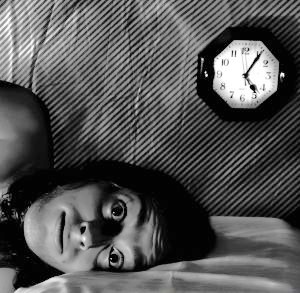Sleep Awareness Week Continues

Today’s tidbit from the National Sleep Foundation’s 2011 poll is that baby boomers are less sleepy than generations Y and Z. Gen Z’ers and gen Y’ers report more sleepiness than gen X’ers and baby boomers, with 13-18 year olds being the sleepiest of all.
Gen Z’ers report sleeping, on average, 7 hr. and 26 min. on weeknights, almost 2 hours less than the 9 hr. 15 min. recommended by experts. More than half of 13-18 year olds (54%) say they wake up between 5:00 am and 6:30 am on weekdays— compared to 45% of generation X’ers and baby boomers and 24% of generation Y’ers.
“As children develop into their teenage years, their bodies are biologically predisposed towards later bedtimes,” says Amy Wolfson, PhD, an expert on adolescent sleep. “If they are required to get up before 6:30 to go to school, it’s impossible for teens to get the amount of sleep they need.”
What Does Sleep Do For Us?
Although scientists are still trying to learn exactly why people need sleep, animal studies show that sleep is necessary for survival. For example, while rats normally live for two to three years, those deprived of REM sleep survive only about 5 weeks on average, and rats deprived of all sleep stages live only about 3 weeks. Sleep-deprived rats also develop abnormally low body temperatures and sores on their tail and paws. The sores may develop because the rats’ immune systems become impaired. Some studies suggest that sleep deprivation affects the immune system in detrimental ways.
Sleep appears necessary for our nervous systems to work properly. Too little sleep leaves us drowsy and unable to concentrate the next day. It also leads to impaired memory and physical performance and reduced ability to carry out math calculations. If sleep deprivation continues, hallucinations and mood swings may develop. Some experts believe sleep gives neurons used while we are awake a chance to shut down and repair themselves. Without sleep, neurons may become so depleted in energy or so polluted with byproducts of normal cellular activities that they begin to malfunction. Sleep also may give the brain a chance to exercise important neuronal connections that might otherwise deteriorate from lack of activity.
Deep sleep coincides with the release of growth hormone in children and young adults. Many of the body’s cells also show increased production and reduced breakdown of proteins during deep sleep. Since proteins are the building blocks needed for cell growth and for repair of damage from factors like stress and ultraviolet rays, deep sleep may truly be “beauty sleep.” Activity in parts of the brain that control emotions, decision-making processes, and social interactions is drastically reduced during deep sleep, suggesting that this type of sleep may help people maintain optimal emotional and social functioning while they are awake. A study in rats also showed that certain nerve-signaling patterns which the rats generated during the day were repeated during deep sleep. This pattern repetition may help encode memories and improve learning.



























0 comments